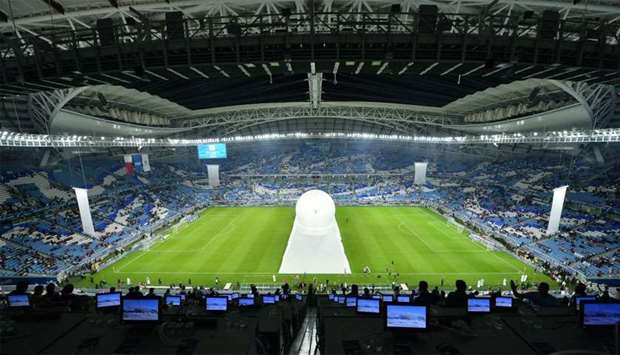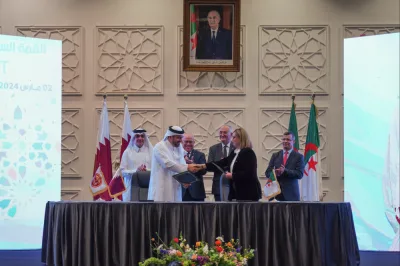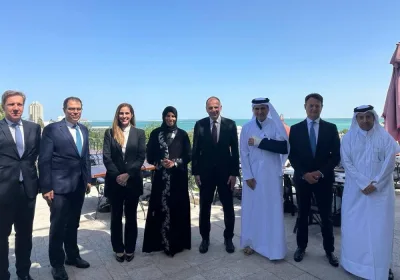Qatar has clearly emerged the winner as an illegal and unjustified blockade imposed on the country by Saudi Arabia, the United Arab Emirates, Bahrain and Egypt enters its third year today.
Several prominent personalities have praised Qatar and shared their views with Gulf Times. Among them are ambassadors who include Ajay Sharma (United Kingdom), Pasquale Salzano (Italy), Seiichi Otsuka (Japan), Kim Chang-mo (South Korea), Carlos Hernandez (Argentina), Faisal Moosa (South Africa), Bart De Groof (Belgium), Ewa Polano (Sweden), Jasminko Pozderac (Serbia) and Askar Shokybayev (Kazakhstan).
Other dignitaries include: Qatar Chamber chairman Sheikh Khalifa bin Jassim bin Mohamed al-Thani, director general Saleh bin Hamad al-Sharqi, political analyst and Georgetown University in Qatar Professor Rory Miller, Qatar Free Zones Authority chief executive Lim Meng Hui, and Qatar Financial Centre (QFC) chief executive Yousuf Mohamed al-Jaida.
Qatar's adroit strategy to shift to overdrive along a new economic corridor has not only successfully manoeuvred trade and business hurdles posed by the Saudi-led quartet but also gave it the much needed diversification in income stream and supply chain.
The New Emerging Belt Initiative (NEBI) – a new economic corridor focusing Kuwait, Oman, India, Pakistan and Turkey with a combined economy valued at of more than $2.1tn, will give Qatar the much needed thrust and confidence to forge new alliances and connect businesses.
"This economic initiative will bring us close to our regional partners, and will connect our businesses, which in turn, will increase the flow of foreign direct investment and create new opportunities across all sectors," according to QFC chief executive al-Jaida. QFC is the brain behind NEBI.
Qatar Free Zones Authority chief executive Lim Meng Hui viewed the inter-linkages between these countries as positive for Qatar's free zones as more companies will enter Qatar, adding “it is a win-win” situation.
“The failure of the UAE-Saudi axis to achieve its goal of dominating Qatar in quick time after the launch of the blockade and the success of Qatar in overcoming the challenge it faced to ensure its political independence and economic sovereignty, have had a negative impact on the perception of the blockading nations,” noted Rory Miller, political analyst and a professor at Georgetown University in Qatar.
British ambassador Ajay Sharma pointed out that Qatar has always had strong relationships with a number of countries. “Over the last two years, we have witnessed a strong push by Qatar to develop these relationships even further and to establish new relationships, through increased trade and investment, humanitarian support, contacts and dialogue,” he said.
Qatar's healthcare sector is continuing to thrive offering world-class services to citizens and residents despite the blockade.
The Public Works Authority (Ashghal) has defeated the blockade if its track record after June 5, 2017, is taken into account. As per published data, Qatar witnessed a surge in infrastructure development while a slew of innovative projects were launched after the blockade was imposed.
Qatar has achieved a series of accomplishments, including the development and growth of the country’s non-hydrocarbon sector, a top Qatar Chamber official said.
These achievements, such as robust non-oil exports and the record spike in the number of companies established since the blockade, run congruent with the chamber’s thrust to open more private sector participation in economic development, as well as efforts towards self-reliance, according to Qatar Chamber chairman Sheikh Khalifa bin Jassim bin Mohamed al-Thani.



